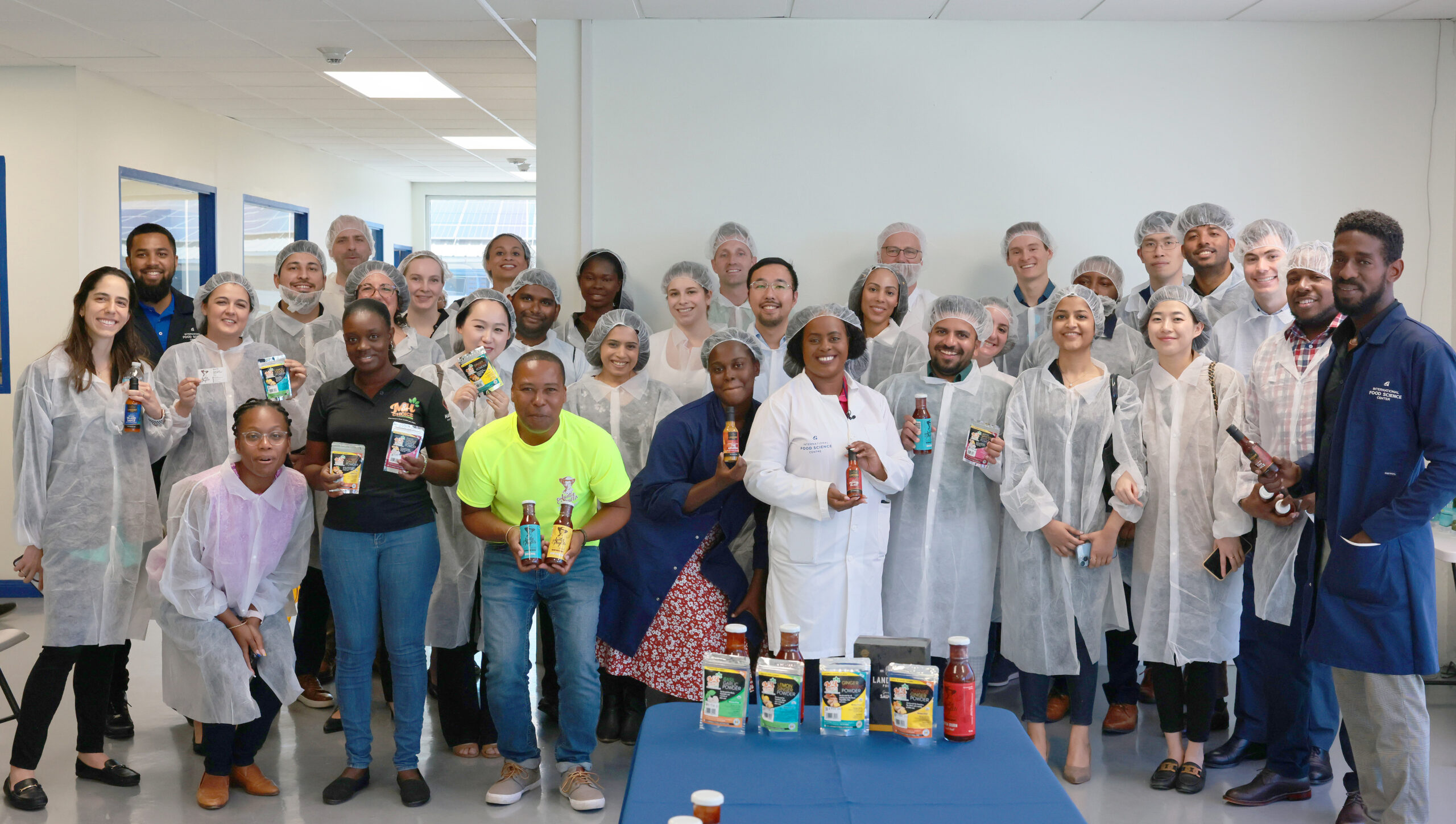Monday to Friday - 8:00 - 4:30

The International Food Science Center (IFSC) proudly hosted 30 United States-based students and faculty for an enriching and immersive visit to foster global collaboration and knowledge exchange.
The IFSC, an initiative of Export Barbados (BIDC) to assist small and micro food processors in scaling up their businesses and readying their products for export, recently opened its doors to the delegation from The Wharton School of the University of Pennsylvania. The IFSC visit was one component of a study tour held as part of the university’s Global Immersion Program (GIP), an elective course under its MBA program.
During their visit, the students were given exclusive access to the state-of-the-art kitchen, manufacturing, and packaging facilities, where they heard first-hand how the IFSC has been helping small and micro food processors improve their businesses.
“Essentially, we are empowering local small producers. Usually, we are considered a country that just consumes or imports items; we want to show Barbadians that there is a facility available to them to manufacture to international standards,” said Negus Sealy, Brand Manager of Landship Foods, Export Barbados (BIDC)’s anchor brand. “The premise of the entire facility is to provide the average Barbadian with a means by which they can streamline consistent, standardized products to market. Using the International Food Science Center, they can scale up their production.”
Kerri-Ann Bovell, a food chemist at the IFSC, discussed the center’s efforts to replace cornstarch, which is a commonly used thickening agent in sauces but is high in calories and carbohydrates. Instead, they opt for locally grown sea moss, which is nutrient-rich and a healthier alternative for manufacturing purposes.
Meanwhile, Wayne Ifill, General Manager of Auntie Phyllis Bajan BBQ Sauce, said that the IFSC has been instrumental in this company’s increasing production and targeting export markets.
“I would never be able to construct a facility like this; the small steam kettle alone costs about $20,000. This facility is crucial for small and micro-entrepreneurs as it allows us to manufacture in large volumes and ensure product safety. With the help of the center, I went from making 96 bottles and packaging them on my own in three hours to producing 384 bottles and 32 cases in the same amount of time.”
Reflecting on the tour, Kaila Cage, the study tour coordinator, expressed deep gratitude to the IFSC for hosting the group and providing a valuable experience. Cage, who has Barbadian roots, mentioned that Wharton has been organizing the GIP for the last 31 years, but it is the first time that they have conducted a study tour in the Caribbean.
The coordinator added, “I believe it is highly beneficial for students to observe the typical economic drivers and cultural norms of a smaller economy. They can learn about the unique ways in which we must think and find solutions to problems that they may not have considered before. We came to the International Food Science Centre to learn how Barbados, being a smaller country, is helping local entrepreneurs scale and grow their products to access larger markets. We are interested in how this initiative is contributing to more sustainable livelihoods for the people of Barbados.”
The visit to IFSC included an interactive session with the staff of Export Barbados (BIDC), the IFSC, and two manufacturers. The session gave students valuable insights into current trends and challenges in Barbados’ manufacturing sector.
